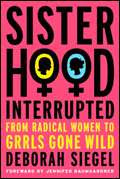 Given all the attention this week on feminism, the age gap, and younger women’s vote, I thought I’d post here an interview I did for Women’s Radio that just went up. Have at it 🙂
Given all the attention this week on feminism, the age gap, and younger women’s vote, I thought I’d post here an interview I did for Women’s Radio that just went up. Have at it 🙂
sisterhood is…
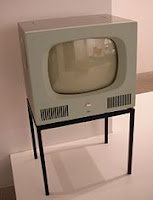 Is this what happens when a woman’s bid for president and a writers strike coincide?
Is this what happens when a woman’s bid for president and a writers strike coincide?
This spring, Fox will air a new reality show called “When Women Rule.” Here’s how reality guru Mike Darnell, who’s overseeing the project, describes it for Variety:
“You take 12 attractive women who feel like it’s still a man’s world and who think they’ve hit a glass ceiling, and you give them their own society to run. Then you take 12 macho, chauvinistic guys who also think men rule the world and see how they survive in a world where they’re literally manservants. … They’ll have to obey every command from the women.”
The cliches at play here are so tired they’re not even worth commenting on. Ok, one comment. Can you imagine anything more counterproductive? Master’s tools, master’s house and all that. Jeesh. But don’t worry. These man-eaters aren’t ugly feminists. They’re “attractive women.” Phew. And we all know that women who think that sexism still exists are really just out to punish men.
“Payback can be a bitch,” Darnell said.
According to Fox Entertainment prexy Peter Liguori (what’s a prexy??), the show is a sociological experiment:
“What it’s doing, in a very Fox-like fashion, is testing social mores,” he said. “This is a social experiment and not a sexual experiment. We decided, why not create this Petri dish of a society and see what happens.”
Fox-like indeed. But here’s my favorite part:
“The other part of the show becomes, what will the women do,” Darnell said. “Will they be able to create a great society or will they fight with each other?”
Oh goodie! I can hardly wait for the ensuing catfight, cuz catfights are so sexy. Catherine Price over at Broadsheet does a great takedown, based on the press release. I join her in prayer: May the writers strike be resolved soon. Save us from more bad “reality” tv.
 So says my gal and resident Gen Y-er Courtney. Writes C:
So says my gal and resident Gen Y-er Courtney. Writes C:
The ugly truth about superwomen, my generation has come to realize, is that they tend to be exhausted, self-sacrificing, unsatisfied, and sometimes even self-loathing and sick. Feminism—and the progress it envisions—was never supposed to compromise women’s health. It was supposed to lead to richer, more enlightened, authentic lives characterized by a deep sense of wellness.
Read the rest, and more, over at The New Statesman this week, where Courtney is blogging it up on behalf of feministing, which was asked to elucidate why they care deeply about a particular spiritual or intellectual philosophy. Courtney is writing her take on, as she says, what feminism ain’t, what it is, and what it could be.
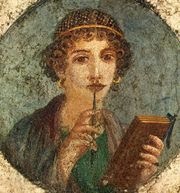 I love it when there are enough books by feminists hot on the popular radar that I have a hard time deciding which to think/write about first. I’m thinking of course of Faludi’s The Terror Dream, Laurel Thatcher Ulrich’s Well-Behaved Women Rarely Make History, and Katha Pollitt’s Learning to Drive and Other Stories. Since I’m still in the middle of them all, I’ll just point to an interesting convo that’s going on.
I love it when there are enough books by feminists hot on the popular radar that I have a hard time deciding which to think/write about first. I’m thinking of course of Faludi’s The Terror Dream, Laurel Thatcher Ulrich’s Well-Behaved Women Rarely Make History, and Katha Pollitt’s Learning to Drive and Other Stories. Since I’m still in the middle of them all, I’ll just point to an interesting convo that’s going on.
Over at TMPCafe Book Club, Garance Franke-Ruta, Jessica Valenti, Amanda Marcotte, Chris Hayes, and Todd Gitlin are collectively offering their takes on Katha’s book. Katha kicks it off with a post titled “When the Political Can’t Be Personal,” in which she expresses her surprise at some of the indignant, misogynist public response to her getting personal, particularly the New York Times review by Toni Bentley–which I agree was energetically negative and over the top.
But I remember Katha’s 1999 review, in the same venue, of three books from the 1990s that seemed to use an n of 1 to make sweeping and often misguided claims (what my sociologist friend calls “me-search”): Wendy Shalit’s A Return to Modesty, Danielle Crittenden’s What Our Mothers Didn’t Tell Us, and Katie Roiphe’s Last Night in Paradise. Her review was titled “The Solipsisters” and began,
Surveying the recent spate of books about women, even the most dedicated feminist might find herself muttering, ”Be careful what you ask for, you might get it.” I’m thinking of the way ”the personal is political,” that watchword of 1970’s feminism, has morphed and mushroomed into something quite other than originally intended — indeed, almost the opposite.
Katha went on to take these young writers to task for assuming that “personal testimony, impressions and feelings are all you need to make a political argument.” I couldn’t agree more, and my distaste for these particular books (well, Shalit’s and Crittenden’s for sure) is and was strong. Katha also noted how some of the most influential texts of feminism (like The Second Sex and The Feminine Mystique) have actually been rather un-self-revealing.
So my question becomes, where and how do we draw the line? And what’s most effective in terms of affecting readers and changing minds?
I’m thinking my next book may have more of “me” mixed in with the commentary this time–but I’m wary. I’m going to a feminist salon later this month where the topic is “Writing in the First Person” and can’t wait to mull over the question with the pros.
Meanwhile, I loved Katha’s retort to Bentley:
[I]t is a strange experience to be accused of telling too much by the author of an ‘erotic memoir’ about sadomasochistic anal sex, in which she describes, among many other graphic details, saving her used condoms in a box. I’m no Freudian, but the concept of projection does come to mind.
HAHAHAHA!
 Three quick hits before I dash off to a Girls Write Now meeting tonight:
Three quick hits before I dash off to a Girls Write Now meeting tonight:
Camille Paglia sounds off on “the sisterhood myth” over at The Guardian, while six leading feminists sound off on the books that changed their lives.
Molly Bennett interviews feministing.com’s Jessica Valenti in The Nation.
And last weekend Smith College celebrated the 65th anniversary of its renowned Sophia Smith Collection with history, art, feminism and the vivid voices of women across decades. Headlining the festivities was “Voices of Feminism Oral History Project,” a four-year initiative highlighting the stories of women overlooked by the longstanding notion of feminism as a white, middle class movement. Happy anniversary, archives!
A thousand thanks to everyone who came out on Friday night to my reading at Park Slope BN: mother/daughter teams Leslie and Clea Weber and Daph and Rena Uviller; father/daughter team Scott and Grace; Megan McKenna; Jean Casella; fellow Invisible Institute member Christine Kenneally; Susan Doherty; Iggy, all those I didn’t know but asked awesome questions (including Marjory and Sam, in the back), Eryka Peskin from The Red Tent, and, of course, Marco (who promises he’s not yet sick of my schpiel). Shout outs to Samantha for organizing it, and to the post-game crew for eating meat loaf and chocolate cake!
I was only sorry I wasn’t able to make it back on Sat. morning for Lauren Bank Deen’s reading for more on one of my favorite subjects: food. Congrats on Kitchen Playdates, Lauren, and those of you with kids, definitely check it out! Lauren was on The Today Show today, and for those who missed it, there’s a piece by her today on MSNBC.

Please come say hello tonight if you happen to be in Brooklyn! Thanks to the karaoke-wielding Sam, I’ll be reading from and talking about Sisterhood, Interrupted at Barnes and Noble in Park Slope (267 7th Avenue) at 7pm. (Note: there will be no karaoke, just lots and lots of books.)
Marco and I are considering moving to the Slope eventually, so I’m going to pretend this is my neighborhood bookstore and see how it feels.
I just discovered this amazing blog, Jewesses with Attitude. Judith Rosenbaum, Director of Education at the Jewish Women’s Archive, is a Jewess this Jewess would love to meet. Ok, Judith posted a lovely review over there, but that’s not the only reason I want to meet her. I swear. She sounds pretty amazing. Definitely check out the blog.
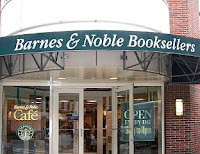
1. A piece I wrote for the Guardian goes live tomorrow. Stripping poles, charred bras, third-wave feminism, fourth waves, and more. Plus, a photo of me that I haven’t yet seen. Let me know what you think. (Not about the photo, thank you, but the article!)
2. Come say hello next week if you’re in Brooklyn! I’ll be reading from Sisterhood, Interrupted at Barnes and Noble in Park Slope on Friday, Sept. 7 at 7pm. (Thank you, Sam! Karaoke, when?!) Come for discussion, come to say hi, or, come for chocolate. I recently learned there’s this place down the block, called Cocoa Bar, that has rather stellar chocolate cake.
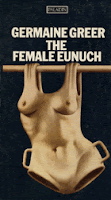
An extremely off the mark, nudge nudge wink wink article on the so-called collapse of feminism (“At Times Like This, It’s Better to Just Be One of the Boys”), by Magnus Linklater, appeared in the Times Online (UK) last week. Writes Linklater,
“Sometimes it’s a relief to be a man. Watching, at a safe distance, the collapse of feminism is a bit like seeing a huge chunk of melting glacier falling into the sea. You know it’s a sign of something serious going on, but you’re glad not to be anywhere near when it happens.”
The commentors in the comments section are doing an excellent job setting ole Magnus straight. My favorite is from “PN,” from London, who writes:
“This article is based purely on two feminist thinkers [Fay Weldon and Germaine Greer] who have made comments in the last week which have been jumped on and to some extent distorted by the media. Strangely enough, I don’t think my only choices of feminist icon are Anne Hathaway or Diana purely because Germaine Greer happens to have said something about them.
There are things to be said in defense of both Weldon and Greer, but I think the more important point is that the opinions of these two people hardly constitute the collapse of feminism. Perhaps you need to get on the internet and investigate some of the blogs and comments on feminist sites which seem to have missed the newsflash that their movement has collapsed.”
Aside from the comments, the most interesting tidbit I gleaned here was that Germaine Greer has a new book out called Shakespeare’s Wife. One of my all-time favorite moments in literature is Virginia Woolf’s speculation about Shakespeare’s sister in A Room of One’s Own. (He didn’t have one, but Woolf imaginatively speculates about her fate nonetheless. What if she had wanted to write?) Anyway, back in real life, apparently men from James Boswell to Anthony Burgess had all assumed that Anne Hathaway (aka Shakespeare’s wife) was either “a lustful, scheming woman who lured Shakespeare into a loveless marriage, or an ugly harridan who drove him away by making his life a misery.” Greer takes a new look. The book sounds intriguing.
Now, if only Greer and Weldon (heros, truly!) could stop commenting all over the place that feminism is dead among young women long enough to get themselves online and to a bookstore and take a new look themselves, perhaps they’d reconsider. Or maybe not. Either way, though, it would make for a much fresher article. Then again, Magnus may not be the person to write it. He’s too busy dreaming of ice chunks and thanking god (or whoever) for having made him a man.
 Is this what happens when a woman’s bid for president and a writers strike coincide?
Is this what happens when a woman’s bid for president and a writers strike coincide?
This spring, Fox will air a new reality show called “When Women Rule.” Here’s how reality guru Mike Darnell, who’s overseeing the project, describes it for Variety:
“You take 12 attractive women who feel like it’s still a man’s world and who think they’ve hit a glass ceiling, and you give them their own society to run. Then you take 12 macho, chauvinistic guys who also think men rule the world and see how they survive in a world where they’re literally manservants. … They’ll have to obey every command from the women.”
The cliches at play here are so tired they’re not even worth commenting on. Ok, one comment. Can you imagine anything more counterproductive? Master’s tools, master’s house and all that. Jeesh. But don’t worry. These man-eaters aren’t ugly feminists. They’re “attractive women.” Phew. And we all know that women who think that sexism still exists are really just out to punish men.
“Payback can be a bitch,” Darnell said.
According to Fox Entertainment prexy Peter Liguori (what’s a prexy??), the show is a sociological experiment:
“What it’s doing, in a very Fox-like fashion, is testing social mores,” he said. “This is a social experiment and not a sexual experiment. We decided, why not create this Petri dish of a society and see what happens.”
Fox-like indeed. But here’s my favorite part:
“The other part of the show becomes, what will the women do,” Darnell said. “Will they be able to create a great society or will they fight with each other?”
Oh goodie! I can hardly wait for the ensuing catfight, cuz catfights are so sexy. Catherine Price over at Broadsheet does a great takedown, based on the press release. I join her in prayer: May the writers strike be resolved soon. Save us from more bad “reality” tv.
 So says my gal and resident Gen Y-er Courtney. Writes C:
So says my gal and resident Gen Y-er Courtney. Writes C:
The ugly truth about superwomen, my generation has come to realize, is that they tend to be exhausted, self-sacrificing, unsatisfied, and sometimes even self-loathing and sick. Feminism—and the progress it envisions—was never supposed to compromise women’s health. It was supposed to lead to richer, more enlightened, authentic lives characterized by a deep sense of wellness.
Read the rest, and more, over at The New Statesman this week, where Courtney is blogging it up on behalf of feministing, which was asked to elucidate why they care deeply about a particular spiritual or intellectual philosophy. Courtney is writing her take on, as she says, what feminism ain’t, what it is, and what it could be.
 I love it when there are enough books by feminists hot on the popular radar that I have a hard time deciding which to think/write about first. I’m thinking of course of Faludi’s The Terror Dream, Laurel Thatcher Ulrich’s Well-Behaved Women Rarely Make History, and Katha Pollitt’s Learning to Drive and Other Stories. Since I’m still in the middle of them all, I’ll just point to an interesting convo that’s going on.
I love it when there are enough books by feminists hot on the popular radar that I have a hard time deciding which to think/write about first. I’m thinking of course of Faludi’s The Terror Dream, Laurel Thatcher Ulrich’s Well-Behaved Women Rarely Make History, and Katha Pollitt’s Learning to Drive and Other Stories. Since I’m still in the middle of them all, I’ll just point to an interesting convo that’s going on.
Over at TMPCafe Book Club, Garance Franke-Ruta, Jessica Valenti, Amanda Marcotte, Chris Hayes, and Todd Gitlin are collectively offering their takes on Katha’s book. Katha kicks it off with a post titled “When the Political Can’t Be Personal,” in which she expresses her surprise at some of the indignant, misogynist public response to her getting personal, particularly the New York Times review by Toni Bentley–which I agree was energetically negative and over the top.
But I remember Katha’s 1999 review, in the same venue, of three books from the 1990s that seemed to use an n of 1 to make sweeping and often misguided claims (what my sociologist friend calls “me-search”): Wendy Shalit’s A Return to Modesty, Danielle Crittenden’s What Our Mothers Didn’t Tell Us, and Katie Roiphe’s Last Night in Paradise. Her review was titled “The Solipsisters” and began,
Surveying the recent spate of books about women, even the most dedicated feminist might find herself muttering, ”Be careful what you ask for, you might get it.” I’m thinking of the way ”the personal is political,” that watchword of 1970’s feminism, has morphed and mushroomed into something quite other than originally intended — indeed, almost the opposite.
Katha went on to take these young writers to task for assuming that “personal testimony, impressions and feelings are all you need to make a political argument.” I couldn’t agree more, and my distaste for these particular books (well, Shalit’s and Crittenden’s for sure) is and was strong. Katha also noted how some of the most influential texts of feminism (like The Second Sex and The Feminine Mystique) have actually been rather un-self-revealing.
So my question becomes, where and how do we draw the line? And what’s most effective in terms of affecting readers and changing minds?
I’m thinking my next book may have more of “me” mixed in with the commentary this time–but I’m wary. I’m going to a feminist salon later this month where the topic is “Writing in the First Person” and can’t wait to mull over the question with the pros.
Meanwhile, I loved Katha’s retort to Bentley:
[I]t is a strange experience to be accused of telling too much by the author of an ‘erotic memoir’ about sadomasochistic anal sex, in which she describes, among many other graphic details, saving her used condoms in a box. I’m no Freudian, but the concept of projection does come to mind.
HAHAHAHA!
 Three quick hits before I dash off to a Girls Write Now meeting tonight:
Three quick hits before I dash off to a Girls Write Now meeting tonight:
Camille Paglia sounds off on “the sisterhood myth” over at The Guardian, while six leading feminists sound off on the books that changed their lives.
Molly Bennett interviews feministing.com’s Jessica Valenti in The Nation.
And last weekend Smith College celebrated the 65th anniversary of its renowned Sophia Smith Collection with history, art, feminism and the vivid voices of women across decades. Headlining the festivities was “Voices of Feminism Oral History Project,” a four-year initiative highlighting the stories of women overlooked by the longstanding notion of feminism as a white, middle class movement. Happy anniversary, archives!
A thousand thanks to everyone who came out on Friday night to my reading at Park Slope BN: mother/daughter teams Leslie and Clea Weber and Daph and Rena Uviller; father/daughter team Scott and Grace; Megan McKenna; Jean Casella; fellow Invisible Institute member Christine Kenneally; Susan Doherty; Iggy, all those I didn’t know but asked awesome questions (including Marjory and Sam, in the back), Eryka Peskin from The Red Tent, and, of course, Marco (who promises he’s not yet sick of my schpiel). Shout outs to Samantha for organizing it, and to the post-game crew for eating meat loaf and chocolate cake!
I was only sorry I wasn’t able to make it back on Sat. morning for Lauren Bank Deen’s reading for more on one of my favorite subjects: food. Congrats on Kitchen Playdates, Lauren, and those of you with kids, definitely check it out! Lauren was on The Today Show today, and for those who missed it, there’s a piece by her today on MSNBC.

Please come say hello tonight if you happen to be in Brooklyn! Thanks to the karaoke-wielding Sam, I’ll be reading from and talking about Sisterhood, Interrupted at Barnes and Noble in Park Slope (267 7th Avenue) at 7pm. (Note: there will be no karaoke, just lots and lots of books.)
Marco and I are considering moving to the Slope eventually, so I’m going to pretend this is my neighborhood bookstore and see how it feels.
I just discovered this amazing blog, Jewesses with Attitude. Judith Rosenbaum, Director of Education at the Jewish Women’s Archive, is a Jewess this Jewess would love to meet. Ok, Judith posted a lovely review over there, but that’s not the only reason I want to meet her. I swear. She sounds pretty amazing. Definitely check out the blog.

1. A piece I wrote for the Guardian goes live tomorrow. Stripping poles, charred bras, third-wave feminism, fourth waves, and more. Plus, a photo of me that I haven’t yet seen. Let me know what you think. (Not about the photo, thank you, but the article!)
2. Come say hello next week if you’re in Brooklyn! I’ll be reading from Sisterhood, Interrupted at Barnes and Noble in Park Slope on Friday, Sept. 7 at 7pm. (Thank you, Sam! Karaoke, when?!) Come for discussion, come to say hi, or, come for chocolate. I recently learned there’s this place down the block, called Cocoa Bar, that has rather stellar chocolate cake.

An extremely off the mark, nudge nudge wink wink article on the so-called collapse of feminism (“At Times Like This, It’s Better to Just Be One of the Boys”), by Magnus Linklater, appeared in the Times Online (UK) last week. Writes Linklater,
“Sometimes it’s a relief to be a man. Watching, at a safe distance, the collapse of feminism is a bit like seeing a huge chunk of melting glacier falling into the sea. You know it’s a sign of something serious going on, but you’re glad not to be anywhere near when it happens.”
The commentors in the comments section are doing an excellent job setting ole Magnus straight. My favorite is from “PN,” from London, who writes:
“This article is based purely on two feminist thinkers [Fay Weldon and Germaine Greer] who have made comments in the last week which have been jumped on and to some extent distorted by the media. Strangely enough, I don’t think my only choices of feminist icon are Anne Hathaway or Diana purely because Germaine Greer happens to have said something about them.
There are things to be said in defense of both Weldon and Greer, but I think the more important point is that the opinions of these two people hardly constitute the collapse of feminism. Perhaps you need to get on the internet and investigate some of the blogs and comments on feminist sites which seem to have missed the newsflash that their movement has collapsed.”
Aside from the comments, the most interesting tidbit I gleaned here was that Germaine Greer has a new book out called Shakespeare’s Wife. One of my all-time favorite moments in literature is Virginia Woolf’s speculation about Shakespeare’s sister in A Room of One’s Own. (He didn’t have one, but Woolf imaginatively speculates about her fate nonetheless. What if she had wanted to write?) Anyway, back in real life, apparently men from James Boswell to Anthony Burgess had all assumed that Anne Hathaway (aka Shakespeare’s wife) was either “a lustful, scheming woman who lured Shakespeare into a loveless marriage, or an ugly harridan who drove him away by making his life a misery.” Greer takes a new look. The book sounds intriguing.
Now, if only Greer and Weldon (heros, truly!) could stop commenting all over the place that feminism is dead among young women long enough to get themselves online and to a bookstore and take a new look themselves, perhaps they’d reconsider. Or maybe not. Either way, though, it would make for a much fresher article. Then again, Magnus may not be the person to write it. He’s too busy dreaming of ice chunks and thanking god (or whoever) for having made him a man.

